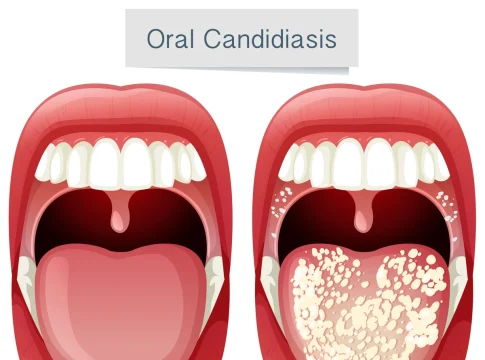Definition
Thrush, also known as Candidiasis or yeast infection, is a fungal infection caused by the Candida species of fungi, the most common is candida albicans. It is an overgrowth of yeast and encompasses a broad range of infections, which afflict the mouth, the vagina or the penis and if left untreated, can lead to systemic and potentially life-threatening conditions. The term Thrush is most used to refer to vaginal thrush. Some of the most common symptoms include itching, burning and soreness of the genital area accompanied by a yeasty smelling discharge from either the Penis or the Vagina.
Risk factors
Thrush is caused by yeast, which thrives in warm and moist conditions such as the mouth, and the vagina and which can live harmlessly on the skin. The yeast usually exists harmlessly in these places but any situation that offsets the balance of the bacteria, will cause the Candida to overgrow and lead to thrush. Thrush is caused by the following: Hormonal changes that alter the balance of bacteria. This may create conducive conditions for the yeast overgrowth and is typical during pregnancy or in adolescent women under twenty years of age undergoing hormonal changes. Some women also get thrush just before or after their periods.
Some health conditions can also trigger a yeast infection. People that suffer from diabetes are more susceptible to thrush due to the high sugar levels, which cause Candida yeast overgrowth. People with HIV and AIDS are also more prone to thrush due to their compromised immunity levels. Age is also a risk factor and the very young and very old are most susceptible to thrush. This is because in both age brackets, the immune system is not strong. The immune system for infants is not fully developed as for the old their immunity is weakens with age. A dry mouth (xerostomia) can cause oral thrush and this may be due to overusing mouth washes or by conditions such as Sjogren’s syndrome. Poor oral hygiene is another cause. Adults that have dentures are especially at risk as the dentures are exposed to outside bacteria each time they are removed.
Some drugs such as antibiotics and corticosteroid medications can also lead to thrush as they offset the balance of bacteria in the mouth. Some practitioners also state that diets containing sugar, dairy products, coffee, tea and wine can cause thrush due to an increase in urinary sugar which triggers yeast overgrowth.
Definition
Thrush, also known as Candidiasis or yeast infection, is a fungal infection caused by the Candida species of fungi, the most common is candida albicans. It is an overgrowth of yeast and encompasses a broad range of infections, which afflict the mouth, the vagina or the penis and if left untreated, can lead to systemic and potentially life-threatening conditions. The term Thrush is most used to refer to vaginal thrush. Some of the most common symptoms include itching, burning and soreness of the genital area accompanied by a yeasty smelling discharge from either the Penis or the Vagina.
Risk factors
Thrush is caused by yeast, which thrives in warm and moist conditions such as the mouth, and the vagina and which can live harmlessly on the skin. The yeast usually exists harmlessly in these places but any situation that offsets the balance of the bacteria, will cause the Candida to overgrow and lead to thrush. Thrush is caused by the following: Hormonal changes that alter the balance of bacteria. This may create conducive conditions for the yeast overgrowth and is typical during pregnancy or in adolescent women under twenty years of age undergoing hormonal changes. Some women also get thrush just before or after their periods.
Some health conditions can also trigger a yeast infection. People that suffer from diabetes are more susceptible to thrush due to the high sugar levels, which cause Candida yeast overgrowth. People with HIV and AIDS are also more prone to thrush due to their compromised immunity levels. Age is also a risk factor and the very young and very old are most susceptible to thrush. This is because in both age brackets, the immune system is not strong. The immune system for infants is not fully developed as for the old their immunity is weakens with age. A dry mouth (xerostomia) can cause oral thrush and this may be due to overusing mouth washes or by conditions such as Sjogren’s syndrome. Poor oral hygiene is another cause. Adults that have dentures are especially at risk as the dentures are exposed to outside bacteria each time they are removed.
Some drugs such as antibiotics and corticosteroid medications can also lead to thrush as they offset the balance of bacteria in the mouth. Some practitioners also state that diets containing sugar, dairy products, coffee, tea and wine can cause thrush due to an increase in urinary sugar which triggers yeast overgrowth.
